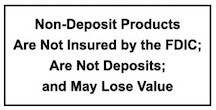Life is unpredictable, and unexpected events can arise at any time. Whether it’s a sudden job loss, a medical emergency, or a major home repair, having an emergency fund is crucial to protect your home and family from financial hardships. In this article, we will explore the importance of emergency funds and how they provide a safety net during challenging times.
Financial Security and Peace of Mind
Building an emergency fund provides financial security and peace of mind. Knowing that you have funds set aside for unforeseen circumstances can alleviate stress and anxiety associated with unexpected expenses. It allows you to face emergencies with confidence, knowing that you have the means to handle them without resorting to high-interest credit cards or loans.
Dealing with Job Loss
Losing a job can be a significant blow to your financial stability. An emergency fund can help cover your living expenses while you search for a new job or explore other income-generating opportunities. It provides a buffer to bridge the gap between employment and ensures that your bills and mortgage payments can be met without jeopardizing your home or disrupting your family’s wellbeing.
Coping with Medical Emergencies
Health-related emergencies can be financially draining, especially if they result in medical bills and ongoing treatment costs. Having an emergency fund enables you to focus on your health and that of your family members without the added stress of mounting medical expenses. It allows you to access necessary healthcare services promptly, ensuring the well-being of your loved ones.
Addressing Home Repairs and Maintenance
Owning a home comes with the responsibility of maintenance and repairs. From a leaky roof to a malfunctioning HVAC system, unexpected home repairs can quickly drain your finances if you are unprepared. An emergency fund provides the necessary funds to address these issues promptly, preventing further damage and maintaining the value of your home.
Avoiding Debt and Interest Payments
Without an emergency fund, many individuals are forced to rely on credit cards or loans to cover unexpected expenses. This can lead to a cycle of debt and high-interest payments, putting a strain on your finances and potentially leading to long-term financial challenges. An emergency fund allows you to handle emergencies with cash, avoiding the burden of debt and reducing your reliance on credit.
Seizing Opportunities
Emergency funds not only protect you from financial setbacks but also provide opportunities for financial growth. In times of economic uncertainty, having liquid funds allows you to take advantage of investment opportunities, such as purchasing stocks or real estate at discounted prices. An emergency fund provides the flexibility to seize these opportunities and potentially generate long-term financial gains.
Building Financial Resilience
Having an emergency fund is a key component of financial resilience. It helps you weather unexpected storms and provides a foundation for long-term financial stability. By consistently saving and building your emergency fund, you create a habit of financial discipline and preparedness, enabling you to navigate future challenges more effectively.
Tailoring the Fund to Your Needs
The size of your emergency fund may vary depending on factors such as your income, monthly expenses, and family size. Financial experts generally recommend having three to six months’ worth of living expenses saved in an emergency fund. However, it’s important to assess your individual circumstances and adjust the fund accordingly to ensure it adequately covers your needs in times of crisis.
Establishing a Plan and Automating Savings
To build and maintain an emergency fund, establish a savings plan that aligns with your financial goals. Set a realistic savings target and automate contributions to ensure consistent progress. Treat your emergency fund as a priority and allocate a portion of your income specifically for this purpose. This way, you gradually build your fund over time without feeling the strain on your day-to-day finances.
Regularly Replenishing the Fund
Remember that an emergency fund is not a one-time effort; it requires ongoing attention and replenishment. As you withdraw from the fund during emergencies, make it a priority to rebuild it once the crisis is resolved. Consistency is key to maintaining the protective cushion of an emergency fund and ensuring its effectiveness when needed.
In conclusion, an emergency fund is a fundamental component of financial preparedness. It provides a safety net to protect your home and family during unexpected events, allowing you to navigate challenges without jeopardizing your financial stability. By prioritizing savings, establishing a plan, and consistently contributing to your emergency fund, you can safeguard your home, reduce stress, and build a more resilient financial future.


